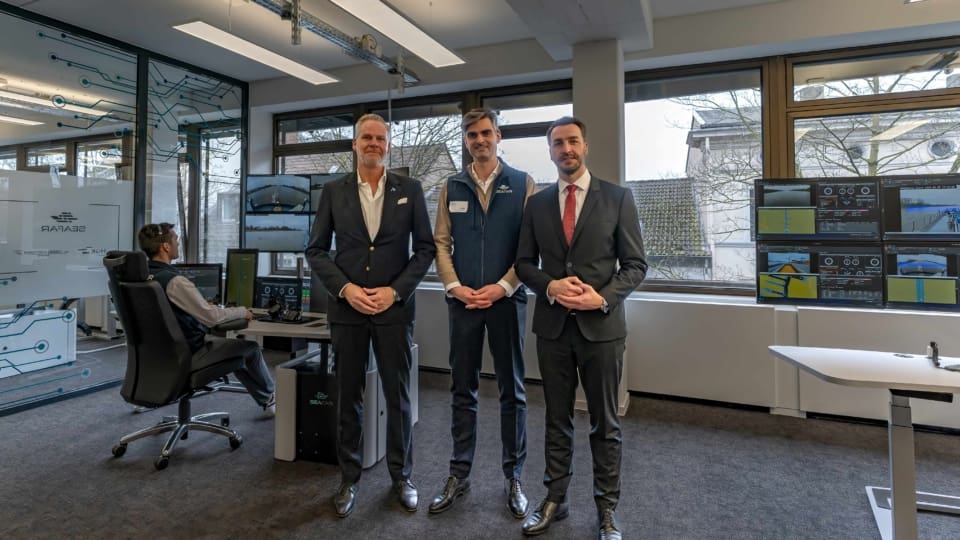It has done so in conjunction with its project partners, HGK Shipping and Reederei Deymann.
The site was officially opened on 28 February in the presence of representatives from politic, business and public authorities.
The Remote Operations Center enables captains to navigate vessels on inland waterways from dry land. This innovative technology is one way of countering the shortage of specialist workers, according to the companies.
The partners are working with the public authorities to use the permits, which they have already received for the test operations that are underway in the lower Rhine area, and earmark other navigation areas for this approach. They are currently involved in the application phase for route sections on the north-west German canal network and on the Mittelland Canal and for other sections of the river Rhine.
These concepts, which involve fewer crew members, are already being successfully used for different types of inland waterway vessels in Belgium and the Netherlands and some of them are due to be controlled from the new SEAFAR base in Duisburg-Ruhrort too.
“Our move to include the inland waterways of Europe’s largest economy also represents a milestone for our company,” said Janis Bargsten, chief commercial officer at SEAFAR. “We can make a valuable contribution to modernising this mode of transport and the job description for this profession with our two partners, HGK Shipping and Reederei Deymann; together, they have so far equipped five vessels for this project.”
“As a leading inland waterway shipping company in Europe, we view ourselves as a driving force for the development of this sector at all times – in constructing new, resource-saving vessels and in also making use of the innovative solutions that are being introduced into everyday life as part of the enormous trend towards digitalisation,” added Steffen Bauer, CEO of HGK Shipping.
“Using the guiding principle of ‘Greater climate protection despite a shortage of specialist workers’, this new technological approach, which provides the option of partly navigating a vessel from an operations centre on dry land, is also designed to safeguard the transport operations for this important means of transport in the long term.”
Martin Deymann, managing director of Reederei Deymann, said: “Remote-controlled operations from dry land can make this profession much more attractive. Being able to combine job and family through a job that’s close to your place of residence provides valuable incentives for staying in inland waterway shipping or launching a career in this business. The Remote Operations Center and the associated boost in digitalisation offer very significant momentum for this long-standing profession.”

